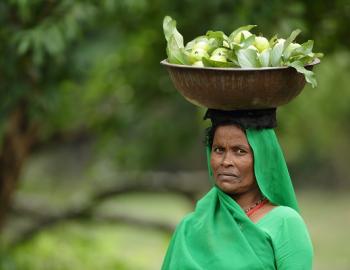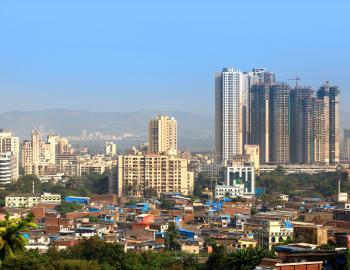Peri-urban ecosystems for urban climate change resilience in India
Peri-urban ecosystems for urban climate change resilience in India
Gorakhpur Environmental Action Group (GEAG) and ICLEI South Asia, in partnership with CDKN, launched this project in India in 2019.
Context
Peri-urban ecosystems play a crucial role in a) providing livelihood security to marginalised communities inhabiting the fringes of the cities and b) contributing to urban resilience through its provisioning, regulating, supporting and cultural services. Despite its important role, the peri-urban areas are under constant threat due to a lack of appropriate policies, weak governance mechanisms and a lack of awareness of their important contribution to urban resilience.
The project aims to establish and build an understanding of the crucial role of peri-urban ecosystems by highlighting the inter-complementarity between the livelihoods of the peri-urban inhabitants and the contribution of ecosystems in urban resilience. It also aims to further mainstream ecosystem-resilience integration in capacity development programmes of apex institutions.
The growing awareness of ecosystem-based resilience is also reflected in policy guidelines of the National Institute of Disaster Management (NIDM), National Institute of Urban Affairs (NIUA), Bihar Roadmap for Disaster Risk Reduction, State Action Plans on Climate Change (SAPCCs), etc. Academic institutions like the School of Planning and Architecture (SPA) also see a clear need to integrate practical case study experiences on ecosystems-resilience in their courses.
The sensitisation and the needed capacity building efforts on fostering the agenda of ecosystem based resilience are required to be developed for those engaged at policy, resource allocation, urban planning and ground implementation of developmental activities and service delivery. Sensitisation of parliamentarians and high level policy planners is required for needed policy and budgetary allocation through NIDM. Orientation and capacity building of related departments and urban local bodies and city planners is also needed which can be achieved through training of national think tanks and academic institutions like NIUA and SPA. Such institutions are in need of practical case studies, training and sensitisation materials and toolkits to help in their ongoing training programmes and course curriculums.
Project Objective
The project's objective is to assess the knowledge needs and capacity gaps on linkages and inter-complementarity between peri-urban ecosystems and urban resilience and find pathways to address these through existing research outcomes and practice-based experiences.
Project activities and outputs
The project activities and outputs include:
- A comprehensive Knowledge Compendium and Capacity Toolkit (in English and Hindi) focusing on:
- Concept of peri-urban ecosystems
- Integrating peri-urban connect in Urban Climate Change Resilience Frameworks
- Case Studies
- Dissemination of the Knowledge Compendium via blogs and a peer-reviewed paper
- Training Modules (power point presentations) and workshops developed for NIUA, NIDM and SPA
- Participation in at least 5 appropriate strategic forums for sharing the generated knowledge
- Organising dedicated panel discussions and sessions on peri-urban ecosystems-resilience in conferences
- National workshop organised with the participation of diverse set of stakeholders
Partners: National Institute of Disaster Management (NIDM)


